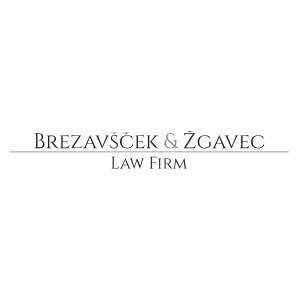Best International Trade Law Lawyers in Slovenia
Share your needs with us, get contacted by law firms.
Free. Takes 2 min.
Or refine your search by selecting a city:
List of the best lawyers in Slovenia
About International Trade Law in Slovenia
International Trade Law in Slovenia encompasses a variety of regulations and legal standards that govern the exchange of goods, services, and technologies across Slovenian borders. As a member of the European Union, Slovenia's trade laws are heavily influenced by EU regulations and directives, ensuring seamless trade integration within the EU market. The country’s strategic position in Central Europe makes it an important hub for international trade, necessitating a robust legal framework to facilitate smooth cross-border transactions.
Why You May Need a Lawyer
There are numerous situations where legal assistance in International Trade Law may be necessary, including:
- Contract Negotiation and Drafting: Legal expertise is crucial in developing contracts that protect your interests in international deals.
- Regulatory Compliance: Ensuring compliance with both EU and Slovenian regulations, including tariffs, trade controls, and standards.
- Dispute Resolution: Handling disputes that arise from international transactions, including mediation, arbitration, and litigation.
- Import/Export Licensing: Navigating the process of acquiring necessary licenses and permits for the trade of specific goods or technologies.
- Intellectual Property Rights: Protecting intangible assets, especially when expanding markets to other EU countries or beyond.
- Customs and Duties: Legal advice on effectively managing customs processes and minimizing tax liabilities.
Local Laws Overview
Key aspects of Slovenian laws relevant to International Trade Law include:
- EU Regulations: Slovenia's membership in the EU subjects it to a comprehensive framework governing internal market operations and trade policies, including competition law, product standards, and trade remedies.
- Trade Agreements: Slovenia benefits from the EU’s trade agreements with countries globally, which can affect tariff and non-tariff trade barriers.
- Customs Code: The national customs code, aligned with EU regulations, plays a significant role in managing import/export procedures and compliance.
- Export Controls: Regulations on dual-use items, ensuring compliance with international security standards.
- Corporate and Commercial Law: Governing entities established in Slovenia and facilitating foreign direct investments.
Frequently Asked Questions
1. What is the legal framework for international trade in Slovenia?
Slovenia follows EU trade regulations and participates in international trade agreements which form a comprehensive legal framework for trade.
2. Do I need a Slovenian partner for my business if I’m a foreign investor?
While not obligatory to have a local partner, having a Slovenian partner can aid in navigating local legal and business practices.
3. How are trade disputes resolved in Slovenia?
Trade disputes can be resolved through mediation, arbitration, or court litigation. Slovenia also recognizes and enforces foreign arbitral awards.
4. How does Slovenia handle trade sanctions?
As an EU member, Slovenia implements EU trade sanctions and restrictions against specific countries and entities.
5. What taxes apply to international trade in Slovenia?
Value Added Tax (VAT), customs duties, and excise duties are usually applicable on goods in international trade.
6. Is there support for Slovenian exporters?
The Slovenian Export and Development Bank and the Slovenian Chamber of Commerce offer resources and support for exporters.
7. Can Slovenia’s legal framework support digital trade?
Yes, Slovenia adopts EU standards for digital trade, including data protection and e-commerce regulations.
8. What are the import/export licensing requirements?
Certain goods may require specific licenses or permits in line with EU regulations, such as pharmaceuticals or defence equipment.
9. How is intellectual property protection affected in cross-border trade with Slovenia?
IP protection is robust, governed by both national laws and EU IP regulations, offering security in cross-border transactions.
10. Can foreign judgments be enforced in Slovenia?
Yes, under EU regulations and bilateral agreements, foreign judgments can be recognized and enforced in Slovenia.
Additional Resources
Here are some valuable resources for those seeking legal advice on International Trade Law in Slovenia:
- Ministry of Economic Development and Technology: As the principal body overseeing trade policies and regulations.
- Slovenian Chamber of Commerce and Industry: Provides resources and advice for businesses engaged in international trade.
- Slovenian Export and Development Bank: Offers financial services and support for exporters.
- European Commission - Trade Page: Offers comprehensive information on EU trade policies affecting Slovenia.
Next Steps
If you find yourself needing legal assistance in International Trade Law in Slovenia, consider the following steps:
- Identify Specific Needs: Clearly define the area of international trade where you require legal assistance.
- Consult Legal Experts: Seek consultations from law firms specializing in international trade and EU law in Slovenia.
- Utilize Professional Networks: Leverage connections in business councils and trade organizations for recommendations.
- Explore Government Resources: Contact Slovenian governmental bodies overseeing trade and commerce for guidance.
By following these steps, you can ensure that you receive comprehensive and expert legal assistance tailored to your international trade needs in Slovenia.
Lawzana helps you find the best lawyers and law firms in Slovenia through a curated and pre-screened list of qualified legal professionals. Our platform offers rankings and detailed profiles of attorneys and law firms, allowing you to compare based on practice areas, including International Trade Law, experience, and client feedback.
Each profile includes a description of the firm's areas of practice, client reviews, team members and partners, year of establishment, spoken languages, office locations, contact information, social media presence, and any published articles or resources. Most firms on our platform speak English and are experienced in both local and international legal matters.
Get a quote from top-rated law firms in Slovenia — quickly, securely, and without unnecessary hassle.
Disclaimer:
The information provided on this page is for general informational purposes only and does not constitute legal advice. While we strive to ensure the accuracy and relevance of the content, legal information may change over time, and interpretations of the law can vary. You should always consult with a qualified legal professional for advice specific to your situation.
We disclaim all liability for actions taken or not taken based on the content of this page. If you believe any information is incorrect or outdated, please contact us, and we will review and update it where appropriate.
Browse international trade law law firms by city in Slovenia
Refine your search by selecting a city.

















